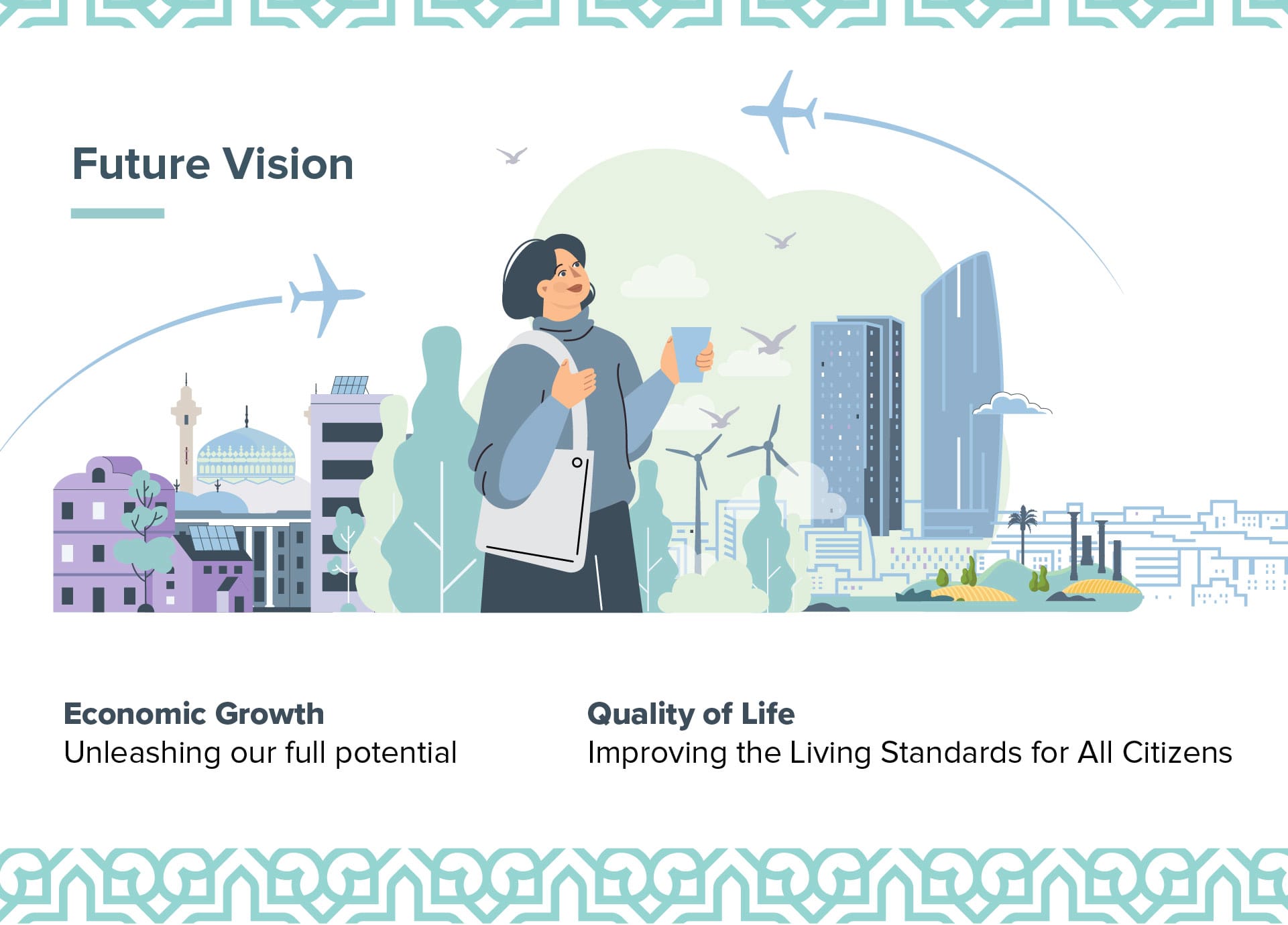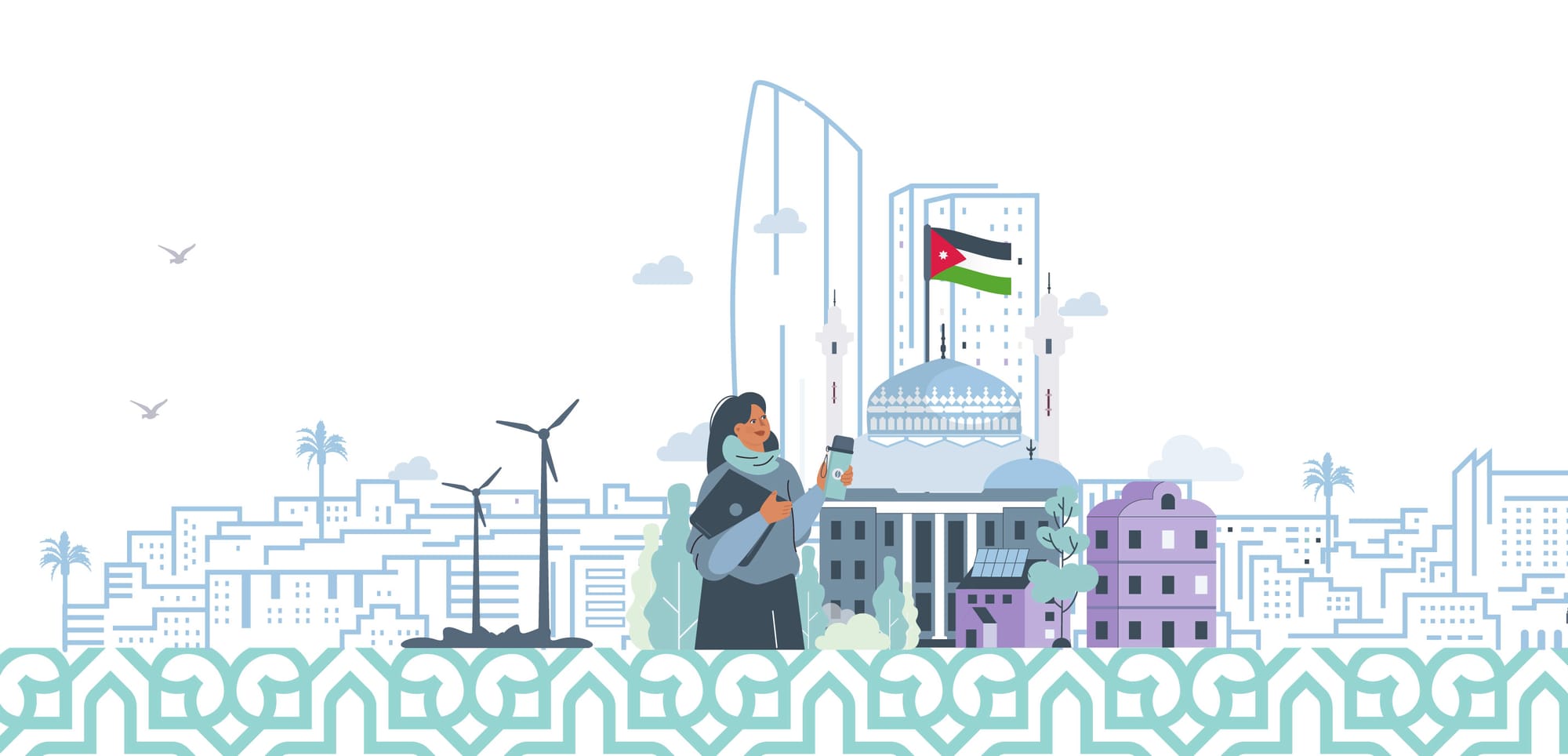In 2016, the escalating Syrian refugee crisis threatened to derail years of social, political, and economic development in Jordan. But in response to the influx of displaced people and the growing burden on host communities, the Jordanian government, international donors, and nongovernmental groups came together to support the Jordan Compact, a landmark initiative to transform the refugee crisis into a development opportunity by integrating refugees into the economy.
Created under the auspices of the Jordan Competitiveness Project (JCP) and initially funded by the U.S. Agency for International Development (USAID), the Project Management Unit (PMU) was central to the direction and success of the Compact. Tellingly, the PMU still operates to this day, seven years after its debut and five years after JCP ended. This article examines how the PMU revolutionized Jordan’s approach to crisis response and came to serve as a model for long-term institutional resilience and reform in the Kingdom of Jordan.
Supporting the Jordan Compact
Even with Jordan’s long history of hosting displaced populations, the Syrian crisis was an unprecedented challenge, as hundreds of thousands of refugees strained national resources and threatened a humanitarian disaster. The Jordanian government faced the daunting task of helping these people without jeopardizing the Kingdom’s long-term goals.
Launched in 2016, the Jordan Compact sought to turn the refugee crisis from a developmental burden into an opportunity for economic growth by providing Syrian refugees access to healthcare, education, and essential services and removing restrictions for them to enter the formal labor market. In exchange, the international community financially supported the Government of Jordan and allowed Jordan’s exporters preferential access to European Union markets. This approach envisioned a “win-win-win”—for refugees, the host country, and the international community.
Embedded in Jordan’s Ministry of Planning and International Cooperation (MOPIC) and tasked with operationalizing the Compact, the PMU embodied this new, proactive way of thinking, ensuring that the response to the refugee crisis was integrated into Jordan’s development agenda. This mandate required understanding and navigating the interplay between short-term humanitarian support and long-term developmental goals, international aid priorities, government strategies, and public expectations.
The World Bank’s “Economic Opportunities for Jordanians and Syrian Refugees” Program-for-Results (PforR) set out concrete steps for achieving the vision of the Compact and made continued development funding contingent upon its successful implementation. The PMU oversaw and monitored PforR deliverables (known as “disbursement-linked indicators”), stepping in when needed with technical assistance to meet key objectives. Among the PMU’s achievements was the significant increase in work permits issued to refugees: from around 3,000 permits annually prior to 2016 to the point where more than 151,000 work permits had been issued by August 2019. As of mid-2023, more than 350,000 work permits have been issued since the signing of the Compact.
The PMU’s approach to implementing the Compact was marked by innovation and adaptability. It developed new procurement mechanisms to mobilize the technical assistance and expertise necessary to implement complex reforms. This approach was crucial in overcoming the challenges posed by government public procurement and hiring regulations, which often hindered the recruitment of technical experts. As an outgrowth of this work, the PMU played a pivotal role in improving investment and business regulations, enhancing export capacities, and fostering a stable business environment. By coordinating the delivery of the PforR and supporting key elements of the Compact, the PMU became a critical player in donor coordination and national development strategy.
“The PMU contributed to the delivery of Compact commitments as well as in ensuring an effective government-donor coordination,” said Zeina Toukan, Minister of Planning and International Cooperation.

From PMU to Reform Secretariat: An Evolution of Purpose and Function
As a result of the PMU’s success in reconciling the Government of Jordan’s long-term vision with international priorities, its mandate was extended in 2019 to encompass a broader government reform agenda in the Five-Year Reform Matrix. As the Government of Jordan’s strategic focus transitioned from the Compact to the Matrix, so too did the form and function of the PMU. Rather than relying solely on USAID funding, a new multidonor trust fund was created, and the PMU evolved into the Reform Secretariat (RS)—a significant shift in scope and operational dynamics.
The RS played a critical role in prioritizing reforms and assigning them to government entities. It also provided needed technical expertise, in-house and external, to ensure proper implementation. The RS placed 50 experts across government entities and became the hub for technical expertise within the government, filling critical gaps in the public sector’s capacity to implement reforms.
During the COVID-19 pandemic, the RS played a pivotal role in addressing the nation's emergency needs—hosting the Humanitarian and Development Partners Group, setting the agenda for the country's COVID response, and providing a platform for crucial briefings and updates. The RS was instrumental in streamlining communication and ensuring that the government's response was coordinated and efficient. Its work was vital in overcoming challenges faced by the government in communicating and prioritizing needs and helped avoid duplication of efforts among various stakeholders, thereby ensuring a unified and effective response to pandemic challenges.
The transition from PMU to RS also required changing from an externally funded unit to an integrated part of the governmental structure as a permanent unit within MOPIC. This evolution signified a maturation of Jordan’s approach to institutional capacity building and reform implementation. The legacy of the PMU and its transformation into the RS is best understood through the lens of institutional capacity building. Initially perceived as an “alien” entity due to its foreign funding and novel approach, the PMU successfully integrated itself into Jordan’s government structure. Its adaptability allowed it to secure a place within the government, instilling new methodologies and perspectives within the bureaucratic framework.
Beyond the Numbers
The achievements of the PMU and RS extend beyond quantitative metrics. While the issuance of work permits and the effective management of hundreds of millions in donor funds are tangible markers of success, the true impact has been the transformation of Jordan’s policy and institutional landscape.
Legislative and regulatory reforms spearheaded by the PMU/RS range from clean technology to venture capital. These reforms were not just about altering laws and regulations but changing how the private sector operates and interacts with the government. The PMU helped advance 46 pieces of legislation and other regulations that have enhanced the private sector’s competitiveness and boosted Jordan’s attractiveness as a destination for investment. Collaborating with various ministries and regulatory bodies, the unit also introduced reforms in labor market segmentation, labor inspection frameworks, early-age childcare, removal of multiple licensing requirements, and e-payment systems, to name a few. These reforms streamlined processes, reduced burdens on businesses, and created an environment conducive to entrepreneurship.
Public-private partnerships (PPPs) formed another critical area where the PMU/RS made a mark. Updating Jordan’s PPP Law and regulations, establishing the PPP, Public Investment Management, and Fiscal Commitments and Contingent Liabilities Units, and developing the National Register of Investment Projects ensured that PPPs are collaborative ventures strategically aligned with national development goals.
All told, the JCP project, of which PMU/RS was born, had an outsized impact on Jordan’s economy—stimulating about $70 million in new Jordanian exports, facilitating more than $100 million in investment opportunities, contributing to the creation of nearly 1,000 jobs, and assisting in securing new or better work opportunities for nearly 30,000 individuals.
Barriers Along the Way
The journey of the PMU/RS was not without its challenges. These hurdles, however, provide valuable lessons for similar initiatives in the future. The character of the PMU/RS depended heavily on its leadership and staff. As the PMU shifted to the RS and funding sources changed, more staff (and eventually leaders) were drawn from government or former government employees rather than professional development workers. This, in turn, shifted the organization’s view and operational focus and led to a slow transition from a culture of blended government and international development expertise to a more government-centric approach.
The PMU/RS highlights the importance of maintaining a clear scope. “Scope creep” and competing demands within large institutions can easily overwhelm small units, making it crucial to enforce strict measures in both design and implementation.
A degree of organizational latitude for units such as the PMU/RS is essential for pushing positive practices within the government they support. This relative autonomy requires active involvement and oversight from donors to ensure that the unit remains focused on fulfilling its scope while maintaining operational independence.

Looking to the Future
The PMU/RS is an important case study. The PMU’s innovative approach to bridging humanitarian emergency response and long-term strategic development priorities during the Syrian refugee crisis allowed for broad impact beyond the scope of the Jordan Compact. Its success and adaptability to changing conditions allowed the PMU to evolve into an institutionalized government entity with a mandate to support nationwide reform efforts.
Jordan's Five-Year Reform Matrix was designed to drive comprehensive economic and social reforms in Jordan. Focused on enhancing the country's competitiveness, it sequenced and prioritized reforms in areas including the business environment, investment promotion, public service efficiency, and social protection. The Matrix aimed to strengthen Jordan's resilience and promote growth, particularly in response to regional challenges such as the Syrian refugee crisis. Today, it has been replaced by the Economic Modernization Vision.
The Government of Jordan completed the 5-Year Reform Matrix and has now outlined the even more ambitious Economic Modernization Vision. The RS has been called on once again to monitor the implementation of the 366 initiatives that comprise the Kingdom’s vision of economic growth, sustainability, and improved quality of life. At the same time, ongoing discussions within MOPIC may result in the RS becoming a full-fledged policy unit within the ministry. The seven-year journey continues.







